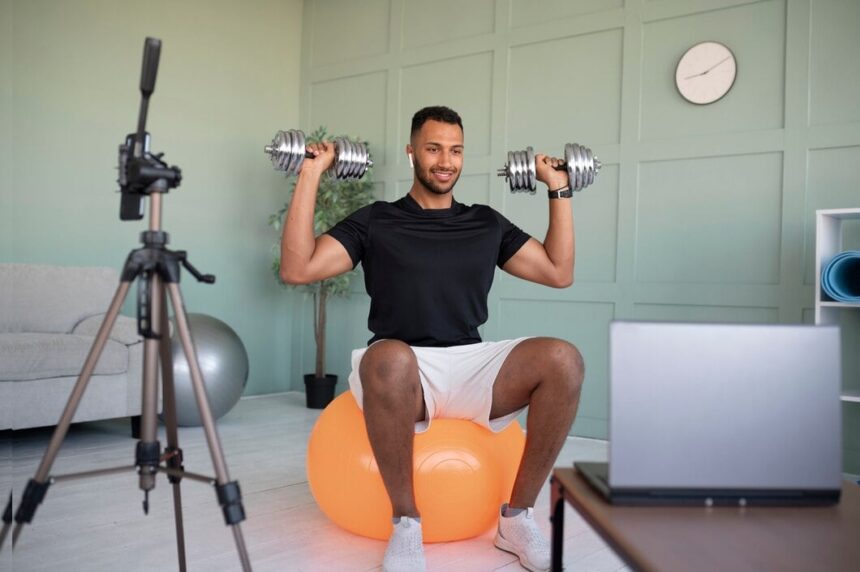Pre-season training can be very demanding to the athletes This can be attributed to the fact that off-season training may at times prove to be quite a period for athletes. Unlike competitions or games, commitment to exercise regimens is not spiced by the urge of competition and therefore, it might take a lot of effort and planning. Although off-season training is a challenging approach to undertake, the proper approach to the process is both efficient and fun. It is now time to look at a number of practical ways to maintain motivation during this crucial stage.
Off Season Training: Its Significance
Off-season training does not only involve physical workout, but it is also a development of a solid working basis during the new season. In their report about Harvard Health, athletics discussed that a player who continues with her/his usual course of training during off season, is 30 percent less prone to be injured when season starts. Moreover, if the athlete is a student, he or she can concentrate on strength, flexibility, and endurance without thinking about performance.
Key Benefits of Off-Season Training:
- Injury Prevention: Weight bearing exercise to increase muscle strength and toning to enhance muscle strength and lessen the chance of injury.
- Skill Development: Practice those core areas that are deemed as weak.
- Mental Health: Have a positive thought process and do not stress yourself too much.
- Consistency: Do not start and stop that only leads to growing problems.
Suggestions for Off-Season Training for Sports Teams
Set Clear Goals
Some people lose direction during the off-season, but if you set up your goals properly it will keep you motivated. Whether you are trying to run a marathon, become good at a specific sport, or gain flexibility, record your goals and performance.
Tip: To help to make goals more manageable, divide them into weekly or monthly objectives.
Create a Structured Routine
This was a well-coordinated training schedule and can go along away in ensuring that there is consistency. They should fit into a cardio, strength training and recovery day model to add some little variety to the workouts.
Statistic: When athletes take time to plan out their training sessions they are likely to adhere to the planned training programs by 40%.
Incorporate Fun Activities
Said simply, off-season training doesn’t have to be a series of identical workout periods. Add variety such as hiking/swimming or yoga into the routine to make it worthwhile. This will just have a chance of avoiding the monotony as well as allow you to try out new ways of exercising.
Example: Choose a different sport or physical training that is relevant to the main training you receive.
Stay Connected with Teammates
Exercising with other people is a great way to get motivated. If possible try to talk with teammates or join a fitness group to make sure you are motivated to work out.
Fact: Organized group training as an approach has been proven to boost motivation levels by 50 percent, the American Council on Exercise has put it.
Focus on Nutrition and Recovery
This is important because athletes need input large amounts of nutrition and quality during off-season training. Pay particular attention to what you eat, and do not disregard your rest days in a week. Stretching as well as foam rolling, meditation in particular should be done before or after sports to enhance performance.
Tip: Some of the apps we can use to monitor our nutrition include MyFitnessPal.
Real-World Success Stories
It is common to hear many qualified professional athletes attribute their success to off-season training. For example, basketball great LeBron James’ off season training program involves elements of physical and psychological fitness. This passion has enabled him to perform at an optimal level for several years.
Mental Health and Motivation
Basically, off-season training is not simply restricted to redefining biomechanical competence but also to psychological wellbeing. The normal activity reduces stress and results in the production of endorphin which is a mood enhancer muscle. More information on exercise, obtained from the National Institute on Mental Health reveals that participation in such an activity can dramatically cut down levels of anxiety and depression by up to 25 percent.
Engagement of Technology in Organizing to Achieve Set Goals
One can use Apps such as Strava for tracking and ensuring that one is on track to run a search on the Fitbod App. These tools give you information, show you progress, and make you continue by offering access to the community of like-minded people.
Conclusion
Staying motivated during off-season training requires setting goals, maintaining a structured routine, and incorporating variety into your workouts. Remember, the off-season is a time to build resilience and strength, both physically and mentally. With the right mindset and approach, you’ll return to your sport stronger, more prepared, and ready to shine. So, embrace the off-season and make it count!







